Line-ball election battle for Scott Morrison’s key ally Steven Marshall
Scott Morrison risks losing one of his few allies inside national cabinet, with Steven Marshall facing a tough election battle in South Australia.
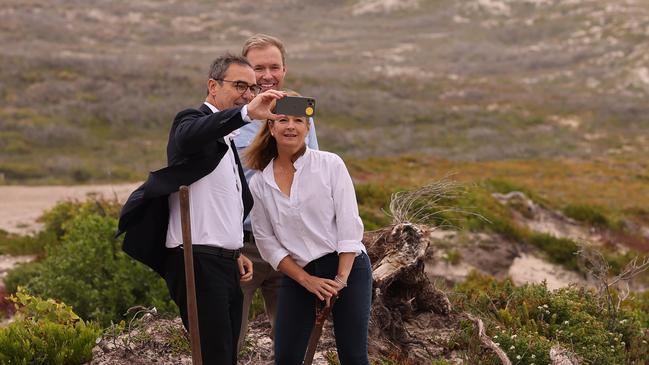
Scott Morrison risks losing one of his few allies inside national cabinet, with Steven Marshall facing a tough election battle in South Australia where the defection of Liberals to the crossbench has weakened his grip on power.
With the writs for the March 19 election to be issued on Saturday, kicking off a four-week campaign, the Premier said he would use the next four weeks to hammer the key theme of South Australia’s economic transformation from a hand-out state to a can-do state.
The election promises to be a curtain-raiser for the federal poll due in May and, as with last weekend’s NSW by-elections, will show whether the value of incumbency is waning as governments chart a path out of Covid-19.
Mr Marshall – whose government has been alone on the mainland in not causing headaches for the Prime Minister during the pandemic – plans to use his close relationship with Mr Morrison to argue for his return. The Premier hailed him as a valued ally in South Australia’s economic recovery.
“We have now got the fastest growing economy in the nation and there is no doubt that Scott Morrison has worked entirely collaboratively with our turnaround strategy in SA,” Mr Marshall said.
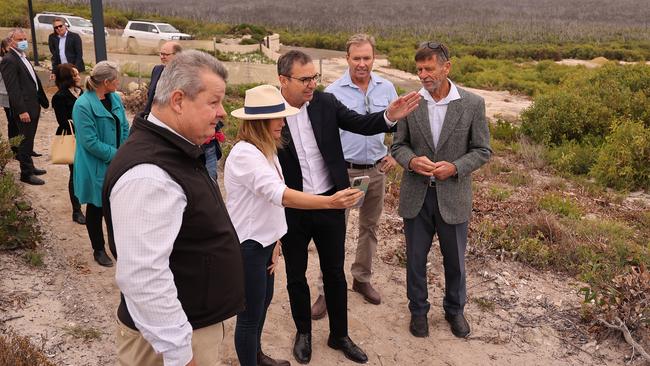
“We have got billions of dollars of new defence contracts coming to SA and we are now cemented as the agreed place to build the fleet of nuclear powered submarines … All of that is a collaboration between the state government and the federal government, so it is a huge risk for the people of SA to move back to tired old Labor.”
The SA Liberals triumphed in 2018 ending a 16-year period of Labor rule, but slid deep into minority government last year when three Liberal MPs became independents.
With six independents in the 47-seat lower house, strategists on both sides believe there is a real risk that Mr Marshall and Labor leader Peter Malinauskas could end up in a post-election charm offensive to convince the MPs to support them in minority government.
Mr Marshall, who visited Kangaroo Island on Friday, said he believed the government deserved to be returned in its own right on the basis of its transformation of the state’s economy, saying South Australia had gone from being a mendicant state that attracted business through handouts to one that was boosting the economy by lowering costs.
He pointed to the 7000-plus tech jobs created by attracting firms such as Accenture, PwC, Google, Cognizant and Salesforce as an example of how the economy was shifting beyond its old emphasis on manufacturing and agriculture.
“We are now attracting global and national companies that would have never even considered being in this state,” he said.
“Under the previous government we were uncompetitive and taxpayer dollars had to be used to entice people here. We have not needed to provide any taxpayer funded incentive to get those companies to move here.
“They have been sold on what we naturally offer: lower cost of occupancy, lower cost of labour, skill availability, lower churn … We have massively reduced energy prices and water prices, we have completely abolished payroll tax for small business. We have created more jobs in hi-tech in our first four years in government than we had in the car industry.
“This is the problem with Labor, they want to subsidise underperforming sectors rather that invest in those sectors that are sustainable and don’t require ongoing taxpayer subsidies. All we have seen from Labor so far is Peter Malinauskas running around waving blank cheques.”
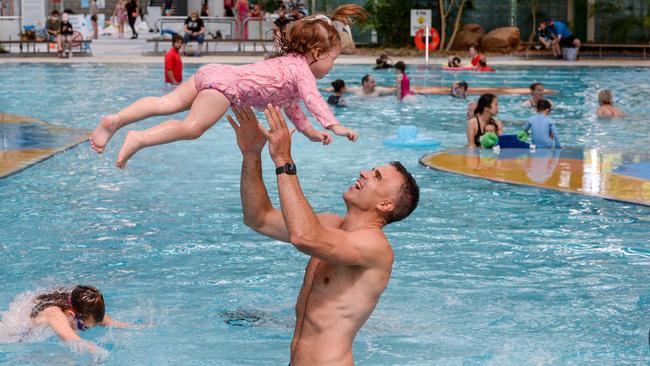
The Opposition Leader rejected the Premier’s claims that Labor intended to create jobs through handouts but that it would partner with business to address skills shortages.
“I said from the outset I was going to be a pro-business Labor leader with a focus on the economy and jobs,” he said.
“Clearly infrastructure policy matters but what we need beyond that is an emphasis on skills and education because that is the best long-term strategy we have to compete in the industries that will define the economy in the future.”
Mr Marshall said his economic strategy had been central to South Australia reversing its brain drain, recording positive net migration for the first time in 40 years.
“These new industries are the sectors that are going to continue to keep young people in SA,” he said. “Not that long ago if young people wanted to get a job with Salesforce or Google they had to move to Sydney, Melbourne, Brisbane or Singapore. Now they can have those same jobs right here.”
Mr Malinauskas said the Marshall government had failed in terms of jobs, pointing to this week’s unemployment figures showing South Australia had the highest jobless rate in the nation.
The Labor leader scoffed at the Premier’s suggestion that Mr Morrison had been a good Prime Minister for South Australia.
Mr Malinauskas suggested Mr Marshall’s closeness to Mr Morrison, who nicknamed the Premier “quokka” on account of his easygoing nature, had damaged South Australia.
“The office of prime minister always deserves respect but the people of South Australia deserve honesty more,” he said. “We have been ripped off our GST share for the benefit of WA, the subs projects have disappeared into a state of limbo, our share of national funding on infrastructure, particularly rail, has declined dramatically, and we’ve been sold out on the River Murray.
“I think Scott Morrison said it best himself when he described Steven Marshall as a quokka. I’ll give Scott Morrison a hot tip, if I’m the premier of South Australia I won’t be anyone’s quokka, I will be standing up for the state.”


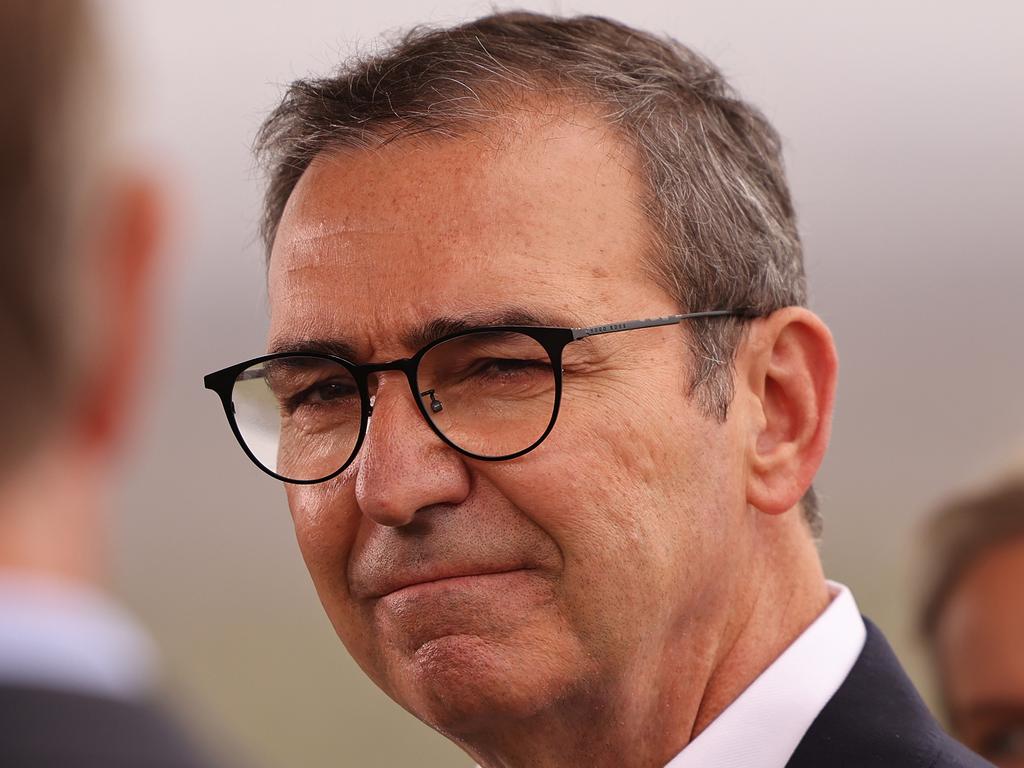
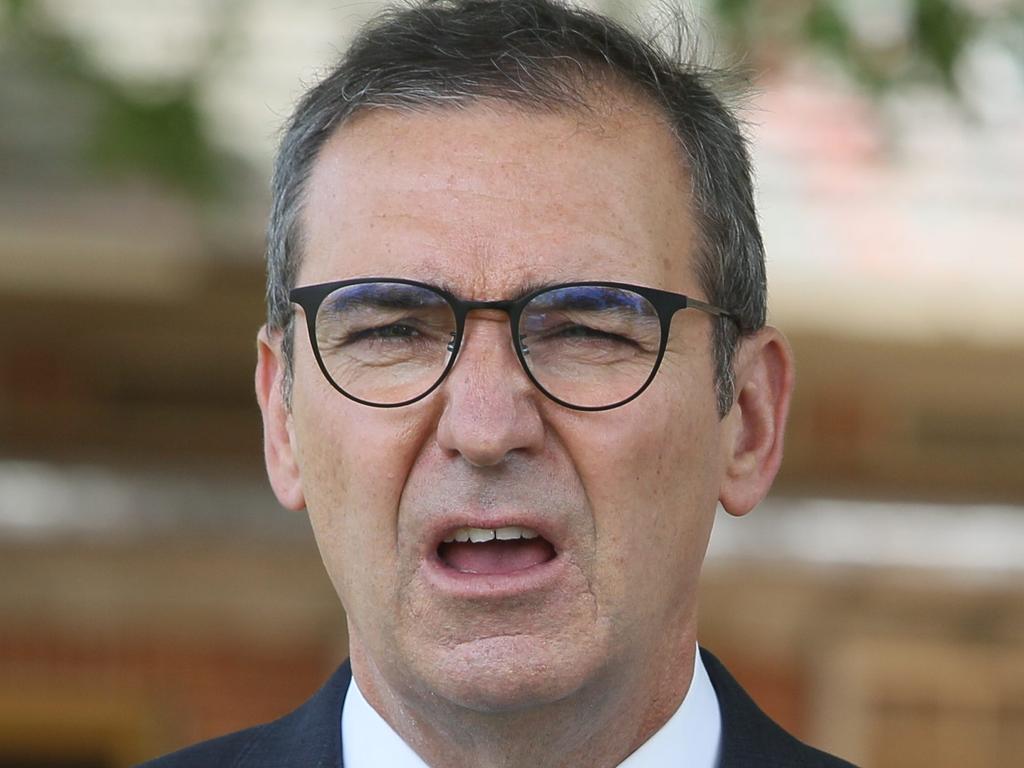


To join the conversation, please log in. Don't have an account? Register
Join the conversation, you are commenting as Logout